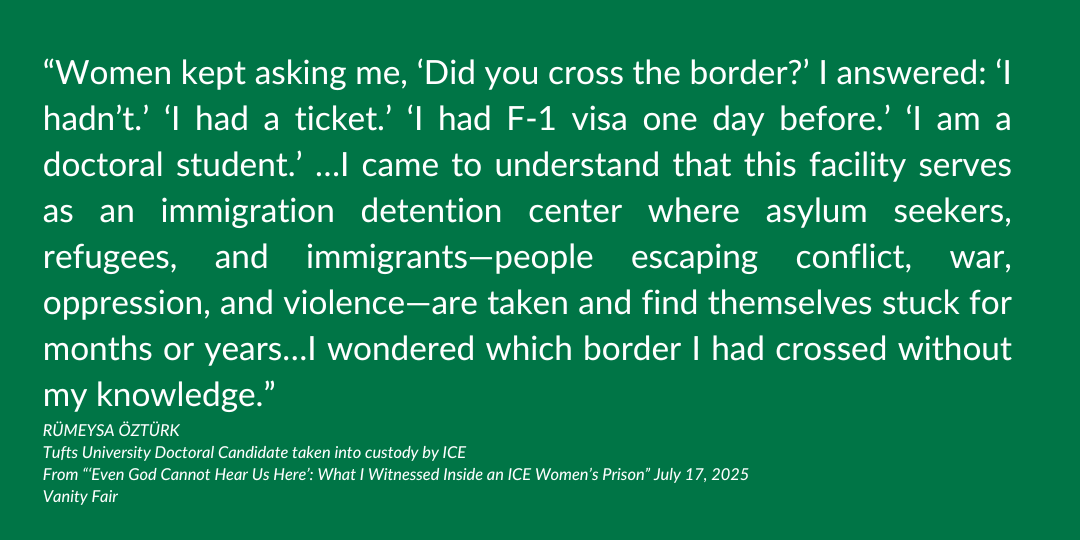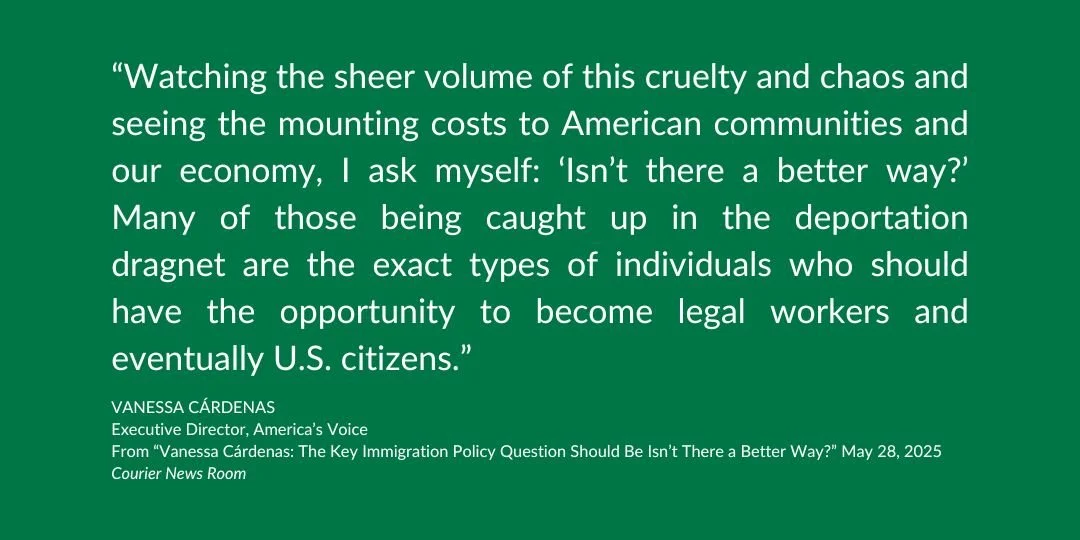Having her family fall victim to the Trump Administration’s “zero tolerance” policy, which criminally prosecuted immigrants that crossed the US border without documentation and separated families as a consequence, Estela Juarez has written a children’s book with the help of Lissette Norman and illustrator Teresa Martin, titled “Until Someone Listens.” The book offers a personal account of Estela’s story of loss and lack of protection under our current immigration system, in the hopes that all who read will listen to the pressing need for immigration reform.
Read moreIsn’t There a Better Way?
Pope Francis’ Legacy of Supporting Migrants
A Child’s Perspective on Immigration Reform: “Until Someone Listens”
Immigration Nation
The six-part Netflix docuseries Immigration Nation, which the Trump administration tried to block the release of until after the election, offers an in-depth look into the inner workings of US immigration agencies under the Trump administration. The series focuses on Immigration and Customs Enforcement (ICE), the federal agency that increased arrests of immigrants by forty-two percent in the first eight months of the Trump presidency. Filmmakers Shaul Schwarz and Christina Clusiau were granted rare access to ICE agents working in New York City, Charlotte, North Carolina, and on the border outside Tucson, Arizona as well as inside detention facilities. The show follows immigration officers, supervisors, administrators, and judges as well as immigrants, including one elderly asylum-seeker detained for fleeing gang violence, a former cop from El Salvador who fled to America, and war veterans who have been deported, as well as parents separated from their underage children. After viewing the series, Sonia Saraiya writes in Vanity Fair: “There still exists the idea of America as a nation that welcomes all—and then there is the country we actually live in, where we send refugees back to near-certain death at the hands of vicious gangs. It seems we’ve gotten so busy punishing people for wanting to be here that we’ve forgotten to be a country worth immigrating to.”
USCIS to Continue Implementing New Policy Memorandum on Notices to Appear
US Citizenship & Immigration Services (USCIS) announced they are continuing to implement the June 28, 2018, Policy Memorandum, “Updated Guidance for the Referral of Cases and Issuance of Notices to Appear (NTAs) in Cases Involving Inadmissible and Deportable Aliens.” Effective November 19, 2018, USCIS may issue NTAs based on denials of the following:
Read moreGQ: “Immigration Judges Are Rebelling Against the White House’s Efforts to Turn Courts into Deportation Machines”
After Attorney General Jeff Sessions removed an immigration judge from a case and reassigned the case to himself and then to another judge who consequently ordered the individual to be removed (i.e., deported), immigration judges and advocates have voiced their protest. The case involved Judge Steven Morley of Philadelphia who used “administrative closure” to suspend a case when a man named Reynaldo Castro-Tum failed to appear before him in immigration court. Administrative closure is used, for example, when the individual couldn’t make it to court for logistical reasons, including the summons being sent to the wrong address. Sessions responded by assigning the case to himself, issuing a decision that severely restricts the use of administrative closure, and instructed Morely to deport the individual if he didn’t show up again.
Read moreUSCIS Updates Notice to Appear Policy Guidance to Support DHS Enforcement Priorities
US Citizenship & Immigration Services (USCIS) issued updated guidance that changes when individuals can be put in removal proceedings. The updated guidance aligns USCIS policy for issuing Form I-862, Notice to Appear—a document given to foreign nationals that instructs them to appear before an immigration judge on a specific date and commences removal proceedings against them—with the immigration enforcement priorities of the Department of Homeland Security (DHS).
Read moreJohn Oliver on America's Immigration Courts
HBO’s “Last Week Tonight with John Oliver” aired a comedic but insightful segment on the injustices and absurdities of US immigration courts. The segment covers various topics including the burdensome task that immigrants face of representing themselves in immigration court if they cannot afford a lawyer, the years-long case backlog, and what happens to asylum applicants who don't win their case. He takes especially sharp aim at the assertion that child immigrants can understand immigration law well enough to effectively represent themselves in court without a lawyer. To this end, he features clips from attorney Amy Maldonado's interviews of toddlers responding to basic biographical and immigration-related questions. To one inquiry about designating a country of removal, Lilah, who is about three or four years old, says: pizza!
OPINION: Those in Immigration Court Should Be Provided Legal Assistance Regardless of Ability to Pay
It’s a common scene in any episode of Law & Order: the detective puts the suspect’s wrists in handcuffs while reciting: “You have the right to remain silent, anything you do or say can be used against you in a court of law; you have the right to an attorney, if you cannot afford an attorney, one will be provided to you.” (Emphasis mine.) The recognizable “DUN DUN” then gongs as the show goes to a commercial break. It’d be natural to assume, then, that people in all kinds of legal proceedings should have an attorney provided to them, regardless of their ability to pay. In immigration court, however, this is not always the case, as a recent ruling by the 9th Circuit Court of Appeals made clear.
Read more


